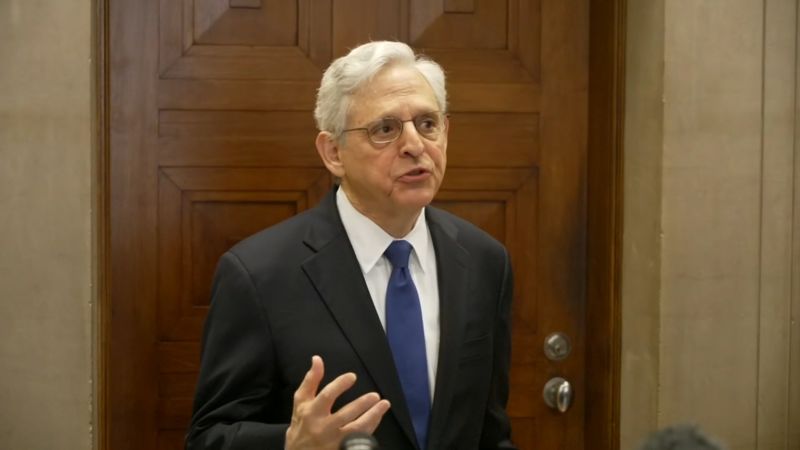The House Oversight and Judiciary committees have taken steps to hold Attorney General Merrick Garland in contempt of Congress for his non-compliance with subpoenas. This action stems from the Republican lawmakers’ request for audio recordings of President Biden’s interviews with Special Prosecutor Robert Hur as part of an investigation into Biden’s handling of classified information. The White House and Justice Department sent letters to House Republicans stating that Biden had asserted executive privilege over these recordings.
The issue at hand revolves around the assertion of executive privilege in response to the request for audio recordings of President Biden’s interviews. This privilege, which allows the President to withhold certain information from Congress, has been cited as the reason for Garland’s refusal to comply with the subpoenas. The decision to assert executive privilege raises questions about the balance of power between the executive branch and Congress, and whether the President has the authority to prevent the release of potentially incriminating information.
The upcoming process of potentially holding Attorney General Garland in contempt of Congress highlights the ongoing tensions between the legislative and executive branches of government. Republicans have been critical of the Biden administration’s handling of classified information, and see the refusal to release the audio recordings as an attempt to cover up potential wrongdoing. Democrats, on the other hand, argue that executive privilege is a legitimate tool to protect sensitive information and ensure the functioning of the executive branch.
The escalation of the dispute between Congress and the Biden administration could have broader implications for the balance of powers within the federal government. The use of executive privilege to withhold information from Congress has been a contentious issue in past administrations, with both Republican and Democratic presidents asserting this privilege when faced with requests for sensitive information. The decision to hold Attorney General Garland in contempt could set a precedent for future interactions between the executive and legislative branches.
As the process of potentially holding Attorney General Garland in contempt of Congress moves forward, there are likely to be further debates and discussions about the limits of executive privilege and the powers of Congress to oversee the executive branch. Both Democrats and Republicans will continue to make their arguments about the importance of transparency and accountability in government, and the need to ensure that checks and balances are maintained. The outcome of this dispute could have far-reaching consequences for the relationship between the President and Congress, and the ways in which information is shared and protected within the federal government.
In the midst of this tense standoff between Congress and the Biden administration, the ultimate resolution of the dispute remains uncertain. The outcome of the process to hold Attorney General Garland in contempt of Congress will depend on a variety of factors, including legal arguments, political considerations, and the willingness of both sides to reach a compromise. Regardless of the final decision, the ongoing conflict highlights the challenges and complexities of governing in a system of divided powers, where tensions between branches of government can arise over issues of transparency, accountability, and the protection of sensitive information.


